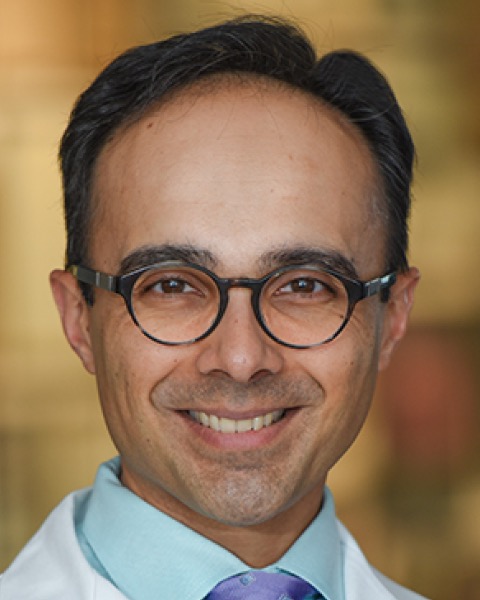
Sameer Sheth, MD/PhD
Professor of Neurosurgery
Baylor College of Medicine
Dr. Sameer Sheth is currently Professor, Cullen Foundation Endowed Chair, Vice-Chair of Research, and McNair Scholar in the Department of Neurosurgery, Baylor College of Medicine, Houston, TX. He also holds joint appointments in the Department of Neuroscience and Department of Psychiatry & Behavioral Sciences at Baylor and is an Adjunct Professor in the Department of Electrical and Computer Engineering at Rice University. Dr. Sheth directs the Gordon and Mary Cain Pediatric Neurology Research Foundation Laboratories at Texas Children’s Hospital and the Jan and Dan Duncan Neurological Research Institute, which focus on genetic and neuromodulatory treatments for refractory epilepsy.
Dr. Sheth graduated summa cum laude from Harvard University with a degree in Physics and Astronomy. He received his M.D. and Ph.D. degrees from UCLA and trained in neurological surgery at the Massachusetts General Hospital and Harvard Medical School. Dr. Sheth specializes in the treatment of patients with epilepsy, movement disorders, and psychiatric disorders. He also runs the Functional and Cognitive Neurophysiology Lab at Baylor College of Medicine, which conducts research centered on a desire to better understand brain function and develop new therapies for neurological and psychiatric conditions. One focus area of the lab leverages the unique opportunities available from neurosurgical procedures to study human neurophysiology. By recording from individual or populations of neurons during these procedures, one can learn about complex cognitive functions such as controlled decision-making and emotional regulation, using single-neuron and LFP recordings. The second focus is on improving our understanding and treatment of severe, refractory psychiatric disorders. A deeper appreciation of the physiological underpinnings of mood and anxiety disorders will lead to more effective treatments using surgical neuromodulation. Disorders such as OCD, depression, addiction, schizophrenia, chronic pain, and many others share dysfunction in the cortical/subcortical circuits. As we learn more about cognitive/emotional circuitry in the normal state, we can develop rationally designed neuromodulatory treatments for patients with refractory psychiatric disorders.
He runs the Functional and Cognitive Neurophysiology Lab, which uses intracranial recordings in patients to study human cognitive neurophysiology, including controlled decision-making and zero-shot learning. The lab also studies the mood and anxiety disorders arising from dysfunction in these circuits, such as depression and OCD, with a focus on utilization of surgical neuromodulatory approaches to optimize and individualize therapy.
Disclosure(s): Abbott: Consultant (Ongoing); Boston Scientific: Consultant (Ongoing); Koh Young: Consultant (Ongoing); Neuropace: Consultant (Ongoing); Zimmer Biomet: Consultant (Ongoing)
Presentation(s):
-
DBS for Treatment Resistant Depression
Sunday, April 27, 2025
2:02 PM – 2:14 PM EDT

.jpg)